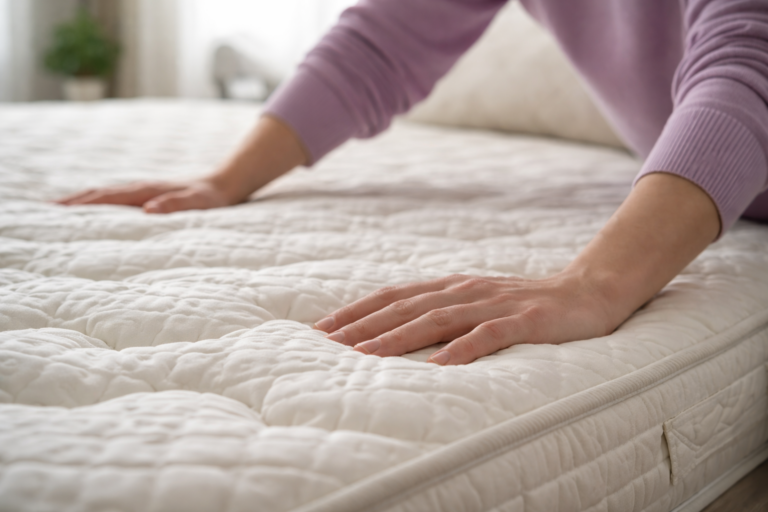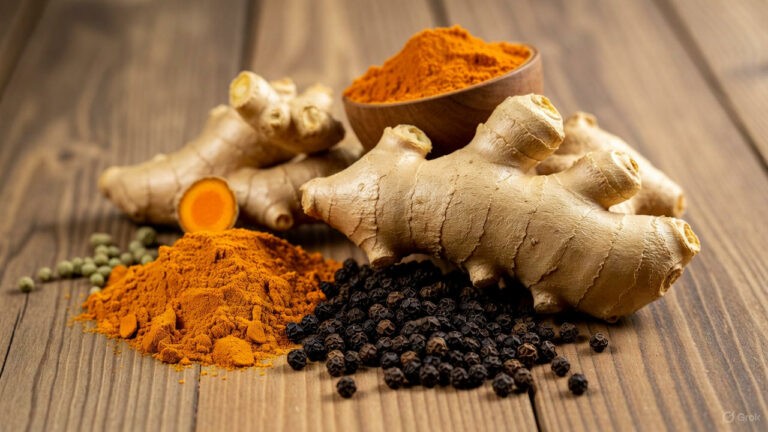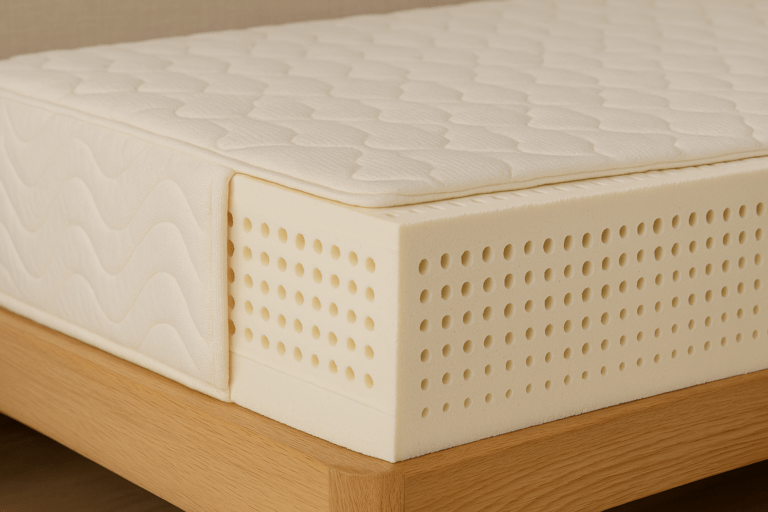
Sleep Loss and Brain Aging
Published on: Oct 22, 2024 Updated on: March 11, 2025
Sleep deprivation does more than just make you feel tired—it can temporarily alter brain function and impair memory, focus, and mood. Research shows that even one sleepless night can lead to short-term brain changes, while chronic sleep loss may accelerate cognitive aging over time.
Missing just 1.5 hours of sleep can impact your health, affecting everything from mental clarity to emotional balance. At Sleep Examiner, we explore how sleep shapes your well-being. We highlight natural sleep boosters like valerian root, tart cherries, passionflower, and the amino acid L-Tryptophan, which supports relaxation and deep sleep.
What Happens to Your Brain After Just 24 Hours Without Sleep
Getting better sleep isn’t just about feeling refreshed—it’s a fundamental pillar of overall health. The effects of sleep deprivation go far beyond fatigue, impacting your brain, body, and long-term well-being.
While one sleepless night won’t cause permanent damage, research shows that just 24 hours without sleep can lead to short-term cognitive decline, mimicking the effects of aging the brain by up to two years—temporarily. The good news? These changes can be reversed with quality restorative sleep.
But even mild sleep loss can take a toll. Missing just 1.5 hours of sleep may not seem like a big deal, but it can seriously affect your:
✅ Alertness & Focus – Slower reaction times and difficulty concentrating
✅ Memory – Forgetting important details or struggling to retain new information
✅ Mood & Emotions – Increased irritability, anxiety, and mood swings
✅ Motivation – Feeling disengaged or uninterested in activities you usually enjoy
And that’s just the beginning.
According to Dr. Nancy Foldvary-Schaefer, a leading sleep expert:
“Sleep deprivation affects your cardiovascular health, immune system, and mental well-being in ways that can’t simply be fixed by a cup of coffee or a quick nap.”
In short, missing sleep weakens your body’s defenses, making you more vulnerable to illness, stress, and long-term health problems. Prioritizing rest isn’t a luxury—it’s a necessity for your mind and body to function at their best.
How Sleep Deprivation Affects Your Health
Sleep is essential for your body to perform crucial maintenance. When you don’t get enough rest, your brain and body struggle to recover from the previous day’s activities. This causes stress at the cellular level, leading to problems like:
- Impaired cognitive function: Your ability to think, reason, and remember things becomes diminished.
- Mood disorders: Prolonged sleep loss can increase the risk of anxiety, depression, and irritability.
- Weakened immune system: Chronic sleep deprivation makes it harder for your body to fight off infections.
- Increased risk of cardiovascular disease: Sleep is crucial for heart health, and sleep deprivation raises your risk of high blood pressure, stroke, and heart disease.
If you’ve been struggling to get the recommended 7–9 hours of sleep per night, you’re not alone. Many of us are familiar with common sleep tips—like meditation, reducing blue light exposure, and limiting screen time before bed. While these are effective strategies, there’s another key factor that often gets overlooked: nutrients that support sleep.
The Role of Natural Compounds in Sleep Support
Your body relies on specific compounds and nutrients to regulate sleep cycles, ease anxiety, and promote relaxation. While a well-balanced diet plays a major role in overall sleep quality, certain natural supplements can provide extra support—helping you fall asleep faster and sleep more soundly.
Here are five natural compounds proven to improve sleep:
- Sesquiterpenes: Found in valerian root and chamomile tea, sesquiterpenes help calm your nervous system and reduce anxiety, allowing your body to relax and drift into sleep more easily.
- Phenolic Compounds: Found in tart cherries and kiwifruit, these compounds boost your body’s natural melatonin production. Melatonin is the hormone that signals to your brain that it’s time to sleep, and increasing its levels can improve sleep quality and duration. You may want to consider a nice sleep blend like, Rowe Casa Organics’ Tart Cherry Organic Sleep Support with Valerian Root and Chamomile.
- Acetogenins: This compound, present in soursop fruit, has natural sedative properties that help you fall asleep faster. Soursop is known for its calming effects, making it a great addition to your evening routine.
- Alkaloids: Found in passionflower, alkaloids work by increasing GABA levels in your brain. GABA is a neurotransmitter that promotes relaxation and reduces anxiety, helping you sleep more soundly through the night.
- L-Tryptophan: An essential amino acid found in foods like turkey, eggs, dairy, nuts and bananas, L-Tryptophan helps your body produce serotonin, which then converts into melatonin—the hormone that regulates your sleep cycle. Studies show that an L-Tryptophan supplement can improve sleep latency, making it easier to fall and stay asleep naturally. Here’s the one I’m trying right now.

“Passionflower promotes better sleep by increasing GABA levels in the brain, which helps reduce anxiety and improve relaxation.”
Why Sleep Should Be a Priority
It’s easy to underestimate how much even a small amount of lost sleep can affect your health, but the long-term effects of sleep deprivation are real. From brain aging to weakened immune function, the risks of not getting enough sleep are too high to ignore. That’s why, at Sleep Examiner, we encourage you to prioritize sleep as part of your wellness routine.
By integrating these natural sleep aids into your diet, you can give your body the extra support it needs to rest, recharge, and stay healthy. Sleep isn’t just about waking up refreshed—it’s essential for your mental, physical, and emotional well-being.
So next time you find yourself tossing and turning, remember that nature provides plenty of ways to support better sleep. And with the right choices, you can fight back against the effects of sleep deprivation and give your brain and body the rest they need to thrive.
At Sleep Examiner, we’re here to help you explore real, natural solutions for better sleep and improved health.







